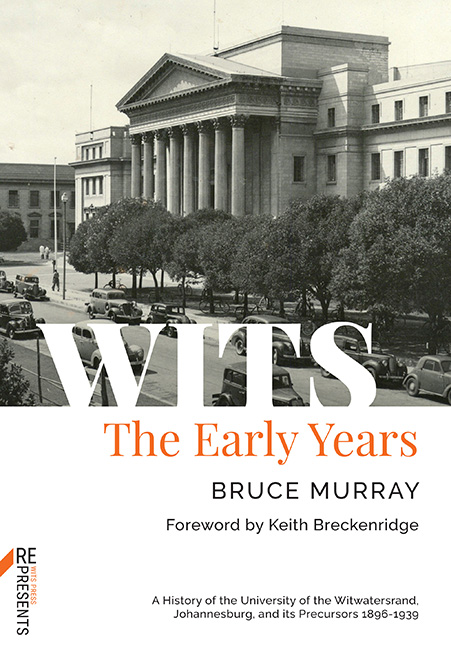3 - A Turbulent Beginning
Published online by Cambridge University Press: 24 November 2023
Summary
Wednesday 1 March 1922 was designated as ‘the appointed day’ for the inauguration of the University of the Witwatersrand, Johannesburg. No ceremony marked the occasion. Indeed, for the general public nothing had happened but a change in name. There was no move of headquarters from Plein Square, for the building programme at Milner Park was still in its very early stages, and few new departments were established.
Some attempts had been made to plan an inauguration ceremony, but on 7 February the Council decided that ‘circumstances’ required its postponement. ‘Circumstances’ were indeed most uncomfortable both within and without the new University. A major storm was brewing over the enforced resignation of the Professor of Anatomy, and hardly had the University opened for its first session when classes had to be cancelled as Johannesburg and the Witwatersrand were engulfed by civil war. On 10 March General Smuts, the Prime Minister, proclaimed martial law, and came to Johannesburg to direct operations personally against the striking white mine workers. With the strikers entrenched in Fordsburg, and along the Brixton ridge, to the west of Milner Park, Smuts used the Biology block nearing completion at the University’s Milner Park site to survey the scene and plan the attack on Cottesloe school and the ridge. The fighting along the Rand lasted for four days, and 153 people were killed before the strikers were finally subdued. The University’s own sympathies in the conflict were never in question. The strikers, though they were battling to preserve the colour bar in the mining industry, were seen as ‘Bolsheviks’. Staff and students alike, many of them veterans of the Great War and intensely loyal to Smuts, rallied to the defence of law and order. Those who did not enlist volunteered as special constables to patrol the streets and suburbs. R.W. Taylor, a commerce student, and L.F. Gregorowski, an assistant lecturer in law and son of the judge, made ‘the supreme sacrifice’ in responding ‘to the call of duty in connection with the revolutionary outbreak’.
The inauguration ceremony, and the University’s first graduation, were finally held on the morning of 4 October at the Town Hall.
- Type
- Chapter
- Information
- WITSThe Early Years, pp. 71 - 92Publisher: Wits University PressPrint publication year: 2022



